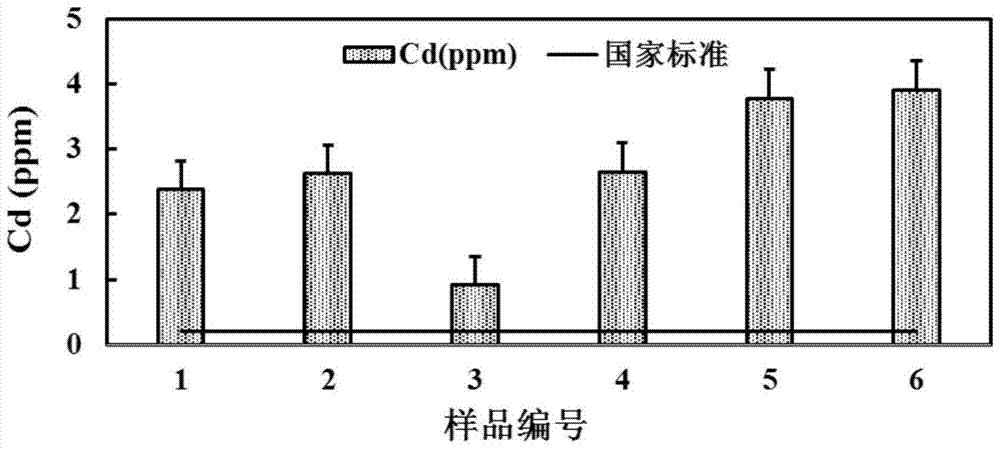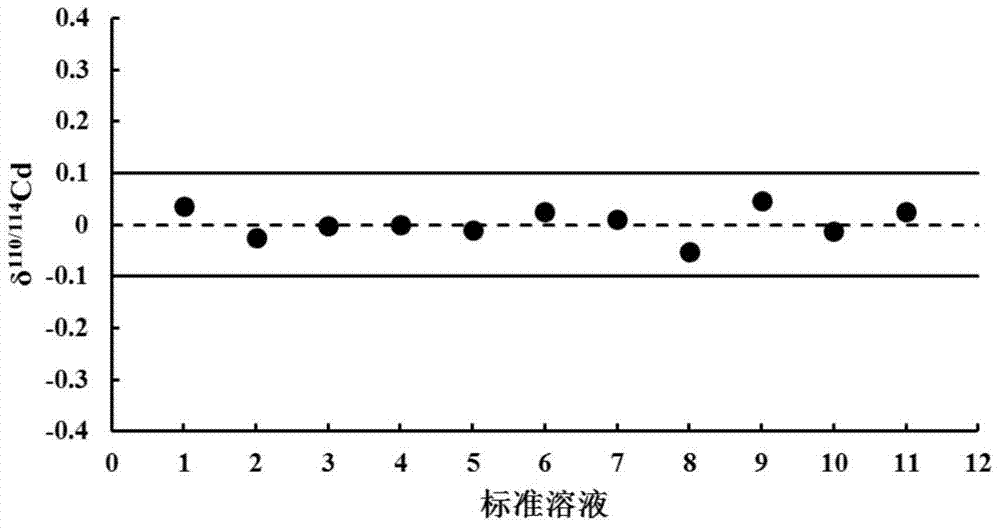Method for Determination of Cadmium Isotope Ratio in Rice by Multi-receiver Inductively Coupled Plasma Mass Spectrometry
An inductive coupling, cadmium isotope technology, applied in measurement devices, material analysis by electromagnetic means, instruments, etc., can solve the problems of limited application potential of cadmium isotope technology, low cadmium content, complicated experimental operation process, etc., and achieve good application. Prospect and potential application value, high recovery rate, simple experimental process effect
- Summary
- Abstract
- Description
- Claims
- Application Information
AI Technical Summary
Problems solved by technology
Method used
Image
Examples
preparation example Construction
[0049] (1), the preparation of rice sample:
[0050] Using rice granules as raw material, use a micro-crusher to crush the sample, then pass it through a 200-mesh sieve, and save it for later use;
[0051] (2) Determination of cadmium content in rice samples:
[0052] Using a ten-thousandth balance, weigh N g of the sample; place it in a Teflon digestion tank, add 6mL 70.0±1.0% HNO 3 , covered and reacted for two hours, then added 2 mL of 30% H 2 o 2 , after standing for half an hour, open the cover to deflate, and then place it in a microwave digestion apparatus;
[0053] Among them, the setting and heating program of the microwave digestion instrument are as follows: the power is 1600W, and the digestion temperature is 175°C. The temperature control program is: increase the temperature from 0°C to 120°C within 8 minutes, and keep it at 120°C for 2 minutes; then increase the temperature from 120°C to 175°C within 10 minutes, and keep it at 175°C 30 minutes; finally, with...
PUM
 Login to View More
Login to View More Abstract
Description
Claims
Application Information
 Login to View More
Login to View More - R&D
- Intellectual Property
- Life Sciences
- Materials
- Tech Scout
- Unparalleled Data Quality
- Higher Quality Content
- 60% Fewer Hallucinations
Browse by: Latest US Patents, China's latest patents, Technical Efficacy Thesaurus, Application Domain, Technology Topic, Popular Technical Reports.
© 2025 PatSnap. All rights reserved.Legal|Privacy policy|Modern Slavery Act Transparency Statement|Sitemap|About US| Contact US: help@patsnap.com



